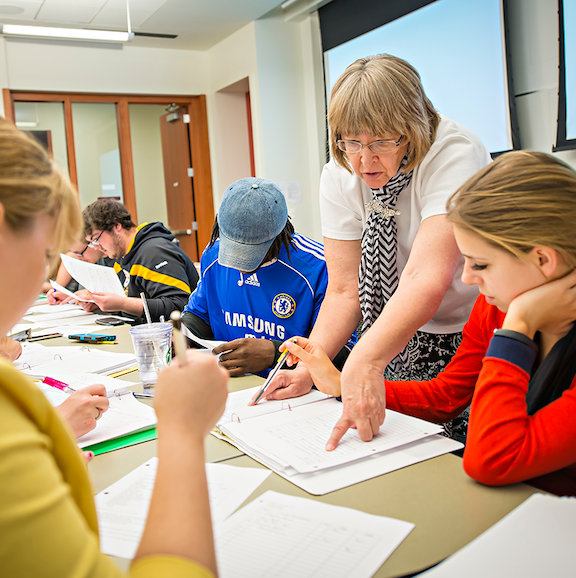In Inquiry-based Learning (IBL) students work through scaffolded, task-oriented steps in order to solve a problem. IBL can be done individually or in groups but it always offers opportunities for some sort of collaboration (Ernst, Hodge and Yoshinobu, 2017).
Definitions of IBL are more amorphous than some of the other active learning modalities. Because of this, I appreciated the “4 Steps of Inquiry-Based Learning” provided by Edutopia (Wolpert-Gawron, 2016). Here is a very brief synopsis of those steps:
-
Students identify and name a problem; they pose a question they want to answer (note the similarities between this and Paolo Freire’s (1972) Problem Posing Education).
-
Students access, assess and synthesize research pertaining to their question during class time.
-
Students present/teach their findings/syntheses. This ‘going public’ step is important because the audience becomes much wider than just the teacher.
-
Students reflect on their process. This is the ever-important metacognitive step of this modality.
Guidance/instructor facilitation during inquiry-based learning has a positive effect on student achievement of learning outcomes. However, less specific guidance seems to enable equivalent outcomes and may better promote the inquiry process (Lazonder and Harmsen, 2016). As is true for most active learning modalities, an instructor who is a coach, guide on the side and co-learner is the best type of facilitator.

POGIL is Process Oriented Guided Inquiry Learning. Specific activities are provided that help enable instructors to become facilitators rather than the source of knowledge.
This NSF-funded project details the conversion of biology curriculum to inquiry-based.
In this presentation, Dr. Ramesh Sivanpillai (of UW's Geographic Information Sciences Center) tells his story about an inquiry-based leaf color tracking exercise and how he integrated cooperative learning structures to support good teamwork.
